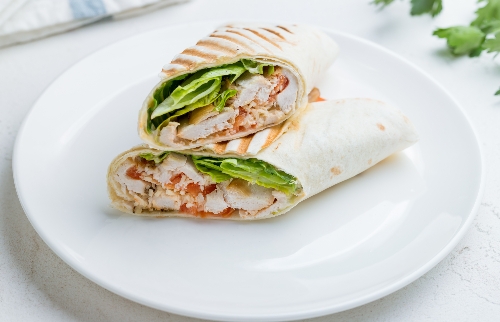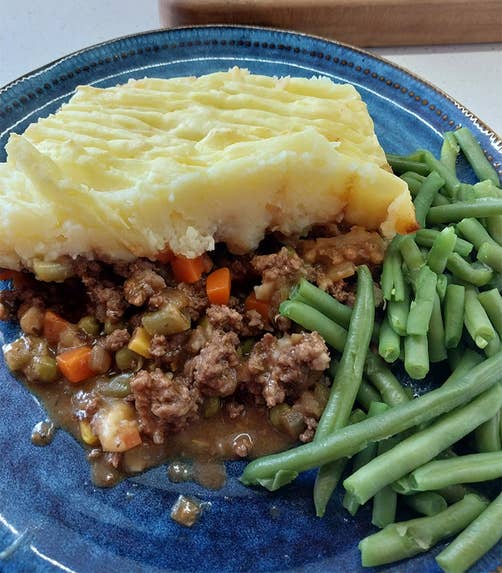11 simple food budgeting tips
11 simple food budgeting tips
Creating a food budget is easy. The hardest part is sticking to it, and we've got you covered with our tips to make saving money on groceries a little bit simpler.
When you’re trying to eat well and pay less, it’s important to take every opportunity to cut costs. Fortunately, creating a food budget is easy! The hardest part is sticking to it, and we’ve got you covered with our tips to make saving money on groceries a little bit simpler.
What is a food budget?
Pantry staplesHow much should I budget for food?
The exact amount you will spend on groceries varies per household. Ultimately, your food budget comes down to a number of factors like:
11 top tips for making a food budget and sticking to it
Here are our tips to help you get started with food budgeting and grocery shopping on a budget that suits you.
1. Start by tracking how much you spend on your food shop
You can’t spend less if you don’t know what you’re spending in the first place! Whether you’re doing your weekly shop or just picking something extra up during the week, keep the receipts. Do this for one month. At the end of the month, sit down with your receipts and look at your spending habits. Ask yourself these questions:
- How often did you buy something you didn’t need?
- How much did you spend throughout the whole month?
- How much did you spend on average each week?
These questions can help you understand how much you spend on groceries now, so you can set a goal and create a realistic food budget goal.
2. Take small steps to lower your food budget
Once you know what you’re spending, now it’s time to reduce it. But the key here is to be realistic. If you’re reducing your budget by a large margin immediately, you’re going to set yourself up for failure and become disheartened and demotivated fast. You know what you’ve spent over the last four weeks. Now, make a goal to take a doable dollar amount off that figure for the following week’s grocery shop. Then if you hit that target, take another reasonable dollar amount off your following week’s budget—and keep going until it gets uncomfortable to meet that budget goal. That could be your sweet spot for your food budget, where you’re maxing out your grocery savings.
3. Evaluate your grocery spend each month to stay on track
At the end of every month, it’s important to look back at what you spent. If you hit your grocery budget goal, or, even better, reach the end of the month with money to spare, well done! If you ended up going over budget a bit, look at why. What worked in your meal planning or shopping list—and what didn’t? What do you need to be aware of next month to avoid making the same mistakes? (The tips further down this article will also help!) This is valuable information and learning to help you stick to your target food budget.
4. Don’t buy takeaways
When it comes to sticking to a food budget, takeaways are your nemesis. Even the cheapest takeout often ends up amounting to more than you realise. The best thing to do is to avoid it altogether. If you just can’t resist a takeaway one night a week, allow for this in your budget from the start. Have you tried making your own takeout at home? It can be cheaper, healthier and delicious. Give it a go! Find some homemade takeaways recipes here.

5. Plan your meals
Plan out your meals a week in advance. It saves time and reduces stress, and it also makes sticking to a budget much easier. It’s simple. Set your budget, create your weekly meal plan, and then write your shopping list. Shopping online means you can build your shopping list over the week and keep track of the total, so you’ll make sure your planned meals put you within your target food budget. Meal planning takes a bit of practice but, once you’ve got the hang of it, you’ll wonder how you ever did without it. (Tip: save your shopping list using online shopping so you can use it over and over.)
Your food budget is what you aim to spend on food groceries every week. It usually includes any items you need to buy regularly, like meat, fruit and vegetables, bread, dairy and eggs.
like oil, flour or spices aren’t typically included because they only need to be bought every so often. Of course, a food budget doesn’t have to be weekly. Some people prefer to budget monthly — it’s just a matter of personal preference. Food budgets are important in many households. Anyone trying to save money can use a food budget to meet their savings goals.
Try these weekly meal plans
1 / 0
6. Buy home brand
PAK'nSAVE's home brands Pams and Value are often very similar to “name brand” products. When you’re on a budget, you shouldn’t pay for branding. For example, a tin of name-brand whole tomatoes can cost as much as double a home-brand tin of the same product. That kind of price difference can quickly amount to a lot when you apply it across many items in your grocery shopping basket.
7. Prep your lunches for the work week
We all know, buying takeout is one of the fastest ways to blow your budget, and there’s few times takeout is more tempting than when you’re at work. It may be appealing to pop out of the office for a pie, but you’ll generally eat healthier and save money by bringing your own lunch to work. Saving on weekday lunches can be as simple as making sure you have a few tins of tuna and some microwave rice at home. Or, you can prep weekday lunch meals in advance at the start of the week.

8. Shop in-season, or go canned or frozen
Kiwis love fresh food, whether it’s meat, seafood, fruit or veggies — and with so many fantastic local products, why wouldn’t we? Check out our Fresh Market Update to find out what's in season, or read our guide to seasonal fruit and veges.
If you’re after a certain ingredient for your meal plan and it’s out of season (and therefore expensive), go for a canned or frozen option instead. It’s just as healthy, but better for saving money.
9. Don’t waste anything
When shopping for food s on a budget, it’s important to waste as little of the food you buy as possible. There are loads of ways to do this: you can boil the bones and carcass of a roast chicken to make a tasty broth or soup; trim the broccoli stem and cook them with the florets; or simply freeze your leftovers. Reducing food waste not only helps the environment, it makes it easier to save because you really get your money’s worth from every purchase.
10. Eat cheaper proteins
Meat can take up a big chunk of your food budget. Depending on your budget, you may prefer to take up more vegetarian meals, and supplement with cheaper, meatless proteins like lentils and beans. For example, adding a drained can of lentils or pulses to your mince or meat dishes can make them stretch further, and add lots of filling fibre and protein to your meals while keeping the overall cost low. You can also save money on meat by buying cheaper cuts and cooking them with your slow cooker, which makes delicious meals out of those tougher cuts of meat. Slow cooking is also a good way to make lots of meals at once and save even more. For example, inexpensive chicken drumsticks become tender and flavourful when slow-cooked in a casserole.
11. Take advantage of specials
It might sound obvious, but with a little forward planning, you can save a lot of money by buying items that are on special offer. If meat is on special, buy it in bulk and freeze it. If canned or dry goods are discounted, then load up the pantry. Get used to browsing the weekly specials online when writing your shopping list and it will soon become second nature.
Get weekly deals in your inbox every week.
More budgeting tips
1 / 0



